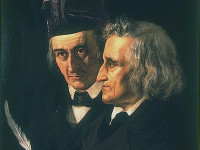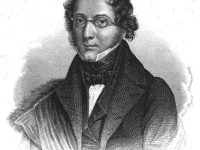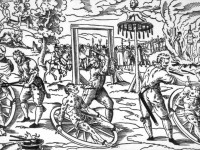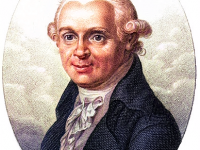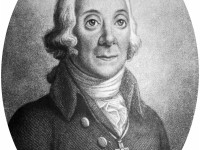Grimm’s Fairy Tales – Not at all Children’s- and Household Tales
On December 20, 1812, the brothers Jacob and Wilhelm Grimm publish the first Edition of “Kinder- und Hausmärchen” (Children’s and House’s Tales), today better known as Grimm’s Fairy Tales. Besides their political engagement in the uprise of the Göttingen Seven [2] and their work on the definitive German dictionary, it’s the fairy tales what they are known for today. “Mirror, mirror, here I stand. Who is the fairest in the land?” – Gebrüder…
Read more

